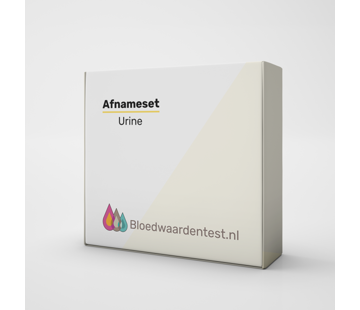7 important biomarkers YourHealthConcept
YourHeathConcept put together this blood test consisting of:
- Vitamin D (25-OH)
- HbA1c
- ApoB
- HS-CRP( High Sensitive)
- Magnesium Intracellular
- TSH
- Vitamin A (retinol)
These markers are not always obvious, but invaluable when it comes to preventing health problems.
Vitamin D 2.
About 70% of the entire population has low vitamin D levels and most don't even realize it. Much is still unknown about vitamin D, but research has shown that low vitamin D levels are linked to health issues such as: weak bones, prostate cancer, inflammation, heart disease, dementia, high blood pressure and depression. A number of factors, such as your daily dose of sunlight and your absorption efficiency of vitamin D, cause a certain target group to be at high risk of vitamin D deficiency, or vitamin D deficiency. The only way to find out is to measure your vitamin D levels through blood tests
HbA1c 2.
HbA1c is now considered one of the best indicators of incipient diabetes. HbA1c shows your average sugar level over the last few months. This gives a better picture than glucose alone, which gives only a snapshot in time.
3.ApoB
Apolipoprotein B is a substance attached to LDL cholesterol. It has a kind of anchor function when LDL adheres to the wall of the veins (this is bad). It has recently been found to be an even better indicator of cardiovascular disease than LDL (or any other test).
4. hs-CRP
High-sensitivity C-reactive protein, or hs-CRP, measures inflammation - the body's response to internal damage - in the body. There is a link between high levels of inflammation and many chronic diseases such as cardiovascular disease, dementia and cancer. Lowering your inflammation levels puts you at less risk for these diseases. There are a number of ways to measure your inflammation levels, but hs-CRP is currently the best way known.
5. Magnesium Intracellular
56% of the population is magnesium deficient, a mineral that plays many important roles including preventing heart disease and diabetes, regulating blood pressure, maintaining healthy cholesterol levels. It is also essential for healthy cell functions. Magnesium is a component of chlorophyll, the green pigment found in plants. Green vegetables are therefore rich in magnesium. Most people eat only foods that are rich in energy but lack micronutrients. Preserved foods such as sugar, soda and even meat cause the problems, because the biggest cause of magnesium deficiency is not enough green vegetables.
6. Thyroid-stimulating hormone (TSH).
Thyroid functions can make or break your health. More than 10% of Dutch people will develop a thyroid disorder sooner or later. Of these, 60% don't even realize it. The thyroid gland ensures that the body is not damaged by stress and disease. It is also the biggest catalyst for energy conversion, muscle growth and a clear and sharp brain. A malfunctioning thyroid disrupts muscle growth and can cause your sports training to be ineffective. This is because the body cannot burn fat because the thyroid is working too slowly.
7. Vitamin A.
Beta-carotene (pro-vitamin A) is converted into vitamin A in the body.
Vitamin A is needed for growth, for healthy skin, healthy mucous membranes and for proper functioning of the eyes and immune system. Important sources of vitamin A are the intake of liver, fish and butter. Vegetables and fruits contain beta-carotene, a precursor of vitamin A. In addition, vitamin A is added to margarine, low-fat margarine and baking and frying products in the Netherlands.
If you also order the general medical check-up with this test, use the discount code 12dubbel, for a 12 euro discount because HbA1c is included twice.









